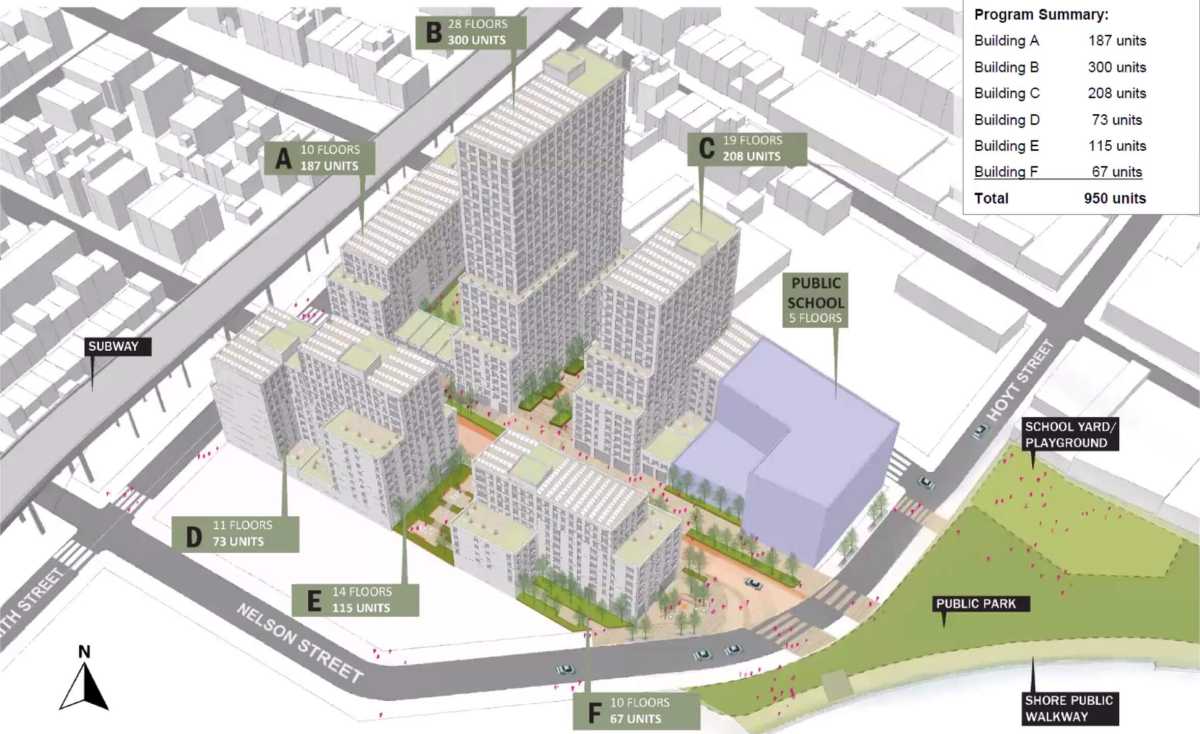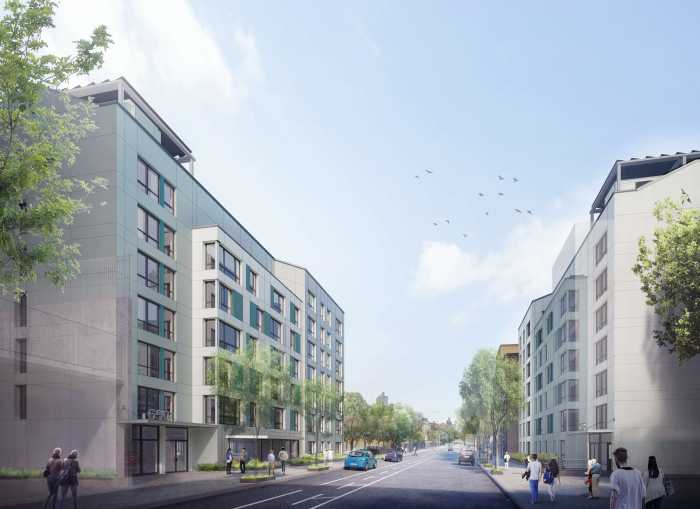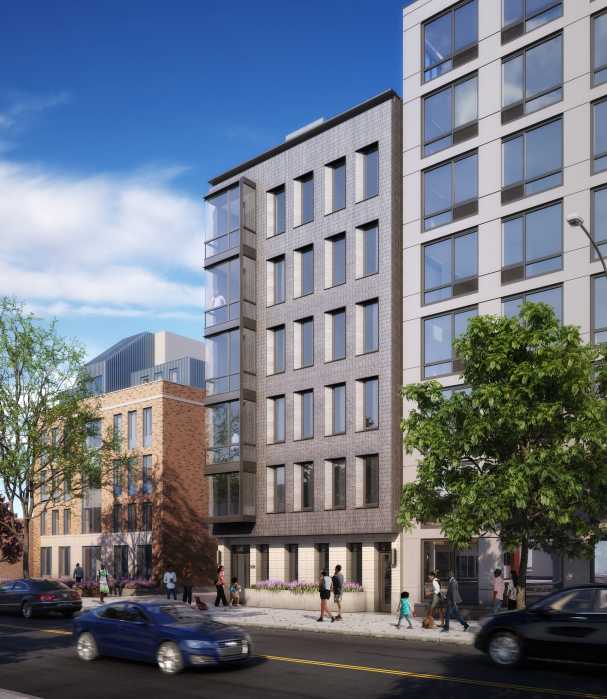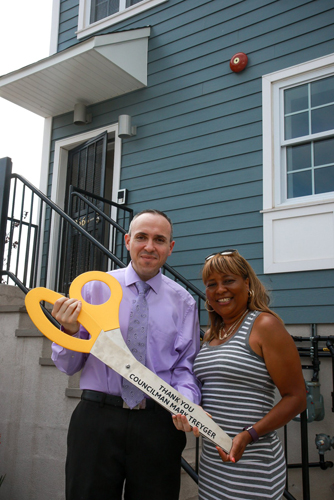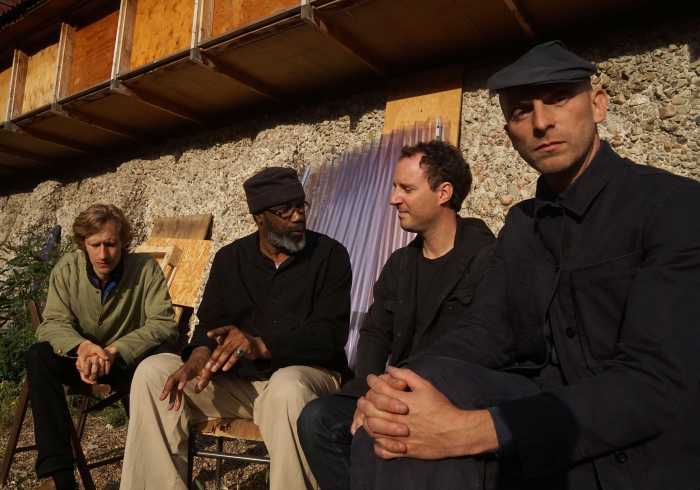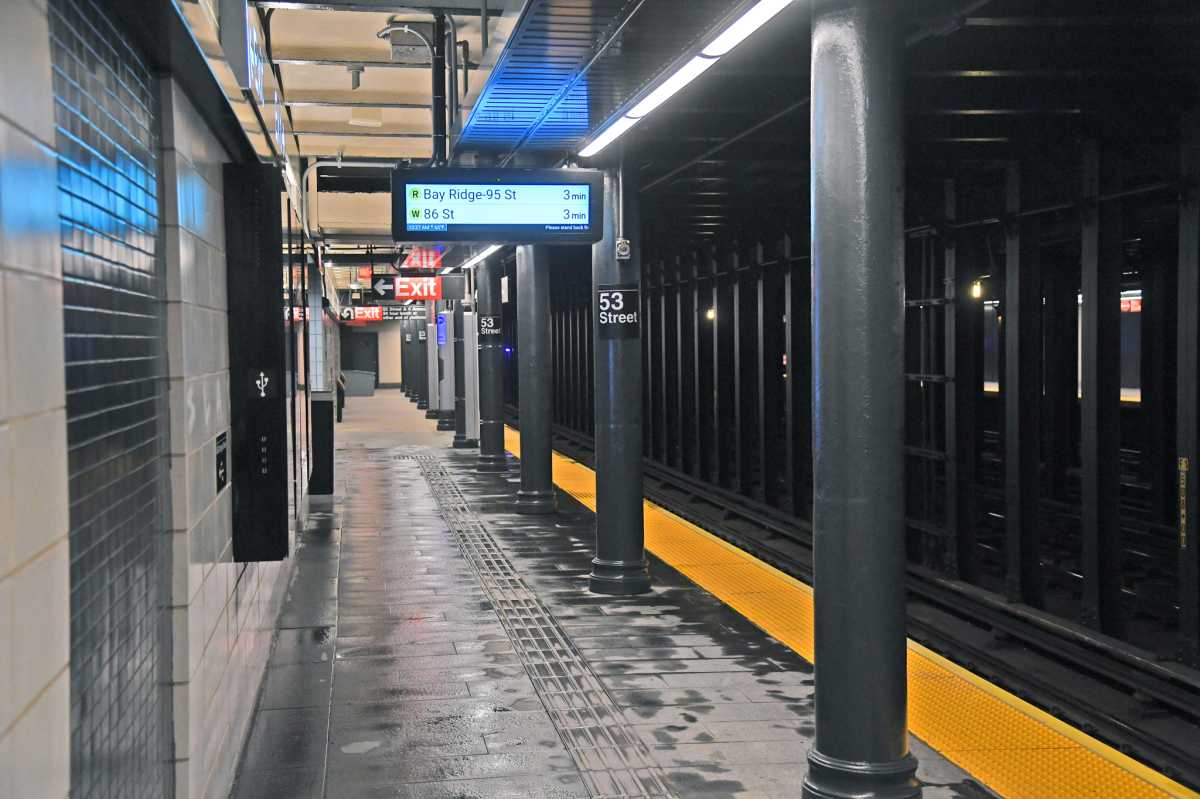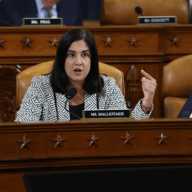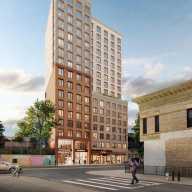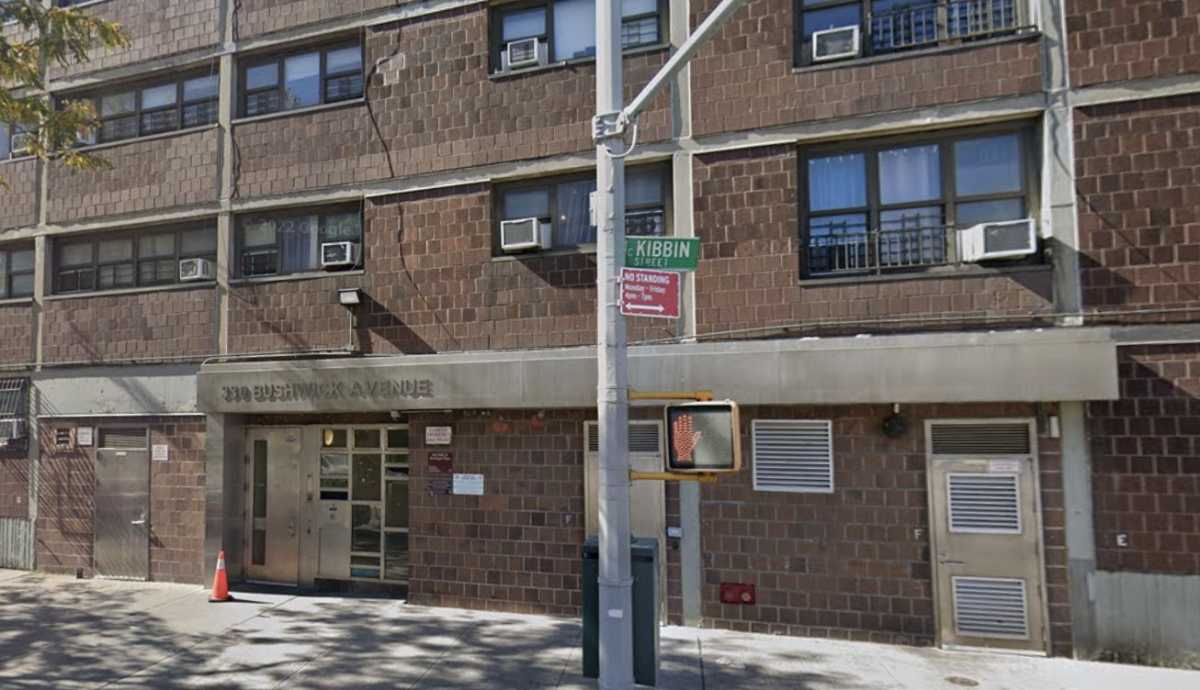City housing gurus reaffirmed that the Gowanus Green project along Smith and Fifth streets will be 100 percent below-market rate housing, according to a Thursday release.
“Gowanus Green helps realize the City’s commitment to fair housing and equitable growth at a moment when safe, affordable housing and public open space is more important than ever,” said Deputy Mayor for Housing and Economic Development Vicki Been in a Nov. 19 statement.
The massive mixed-use campus is part of the impending Gowanus rezoning and will add almost 1,000 housing units to a historically-polluted lot along the noxious canal, with prices tagged to different income levels of the federally-designated Area Median Income, or AMI, something the city already committed to back in March.
The Department of Housing Preservation and Development — the city’s lead agency for the project — and their cadre of private development partners unveiled the pricing levels for the 950 units, 883 of which will be rentals and 67 will be co-ops.
Half of the apartments, or 475 units, will be priced at up to 50 percent AMI, which equates to a salary of $51,200 for a family of three. Within this tranche, 15 percent of rentals will be earmarked for formerly-homeless households.
One in 10 apartments, or 95 units, will be targeted at households making a “moderate income” between 51-80 percent AMI, topping out at $81,920 for a family of three.
The remaining 40 percent of units will go to the highest income brackets in the project, which includes both rentals and all of the co-ops. The rentals will be tagged at up to 120 percent AMI, or $122,880 for a family of three, while the homeownership apartments will be priced at up to 130 percent AMI, or $133,120 for the same size household.
Some 115 units of the campus, or just above 12 percent, will be set aside for seniors aged 62-years or older.
While some of the higher-priced units stretch the meaning of the word “affordable,” advocates of the project said it will provide hundreds of much-needed apartments below market rate right next to public transit and near the wealthy brownstone neighborhoods of Carroll Gardens, Cobble Hill, and Park Slope.
“950 units of affordable I think can make an incredible difference in the lives of thousands of people and I’m so excited to welcome so many new people into this neighborhood,” said Ankur Dalal at a virtual presentation Thursday evening about the project to Community Board 6.
But opponents of the plan have voiced concern about risks of building housing and a school above the polluted site.
“The community has really serious health and safety concerns about this development plan,” said Jack Riccobono of the group Voice of Gowanus, a coalition of activists which also opposes to the larger rezoning of the neighborhood.
The six-acre project site used to house a Citizens Gas Works plant which was decommissioned in the 1960s before the city seized the lot in 1975 via condemnation, designating it a “Public Place.”
The gas company later became part of what is now National Grid, and the utility company started cleaning the soil in summer 2019 under the state’s Brownfield Program.
Coal tar — a toxic byproduct of gas production that is common in and around the Gowanus — has seeped 150 feet deep into the ground at the site over the years.
Nat Grid is tasked with removing the gunk at a depth of 22 feet, before placing a cover on the entire site and installing a canal-side bulkhead to keep the remaining pollutants from oozing into the waterway, according to an environmental guru.
“This remedy protects public health and the environment by removing contamination and by boxing in contamination remaining beneath the site, preventing it from spreading further,” said Mark McIntyre, the director of the Mayor’s Office of Environmental Remediation. “This is a standard approach for remedies at former gas plant sites.”
The utility company is required to monitor the remedy after its completion in summer 2021, and the Gowanus Green developers may have to do more remediation of shallow soil before they start building, McIntyre said.
The six-building campus will range in height between nine and 28 stories tall and will be built by a cadre of developers, including Hudson Companies, the Bluestone Organization, Jonathan Rose Companies, and local nonprofit Fifth Avenue Committee, and will also include a commercial strip on the ground floor along Smith Street.
The building complex will capture 100 percent of its stormwater runoff using retention tanks, green roofs, rain gardens, and so-called bioswales, according to HPD.
A new public school and an 1.5 acre waterfront park along the banks of the Gowanus are also slated for the site, but they are likely not going to be funded by the developer.
The original Request for Proposal the city sent out for the project in 2007 did not include a school and had 25 percent market-rate housing, but officials mandated the developers at the time fund and maintain the park.
Local Councilmember Brad Lander in March said that the funding for the open space would have to now come out of the city’s pocket in order to allow the developers to build a completely below-market-rate project.
A senior city planner for the Gowanus area declined to confirm that at a Thursday virtual presentation to locals, saying only that the Parks Department would design the new lawn and own it, but not who would foot the bill for construction and maintenance.
“The maintenance piece is something that I think is wrapped up with the funding questions around the park, which we’re still looking into as an agency and development team,” Department of City Planning’s Jonathan Keller said during the CB6 meeting. “I wish we had all the answers for you tonight but we’re going to have to wait until those are clearer down the road.”
With regards to the school, the developers only said they would provide the space for a future school, and a borough representative for HPD added that the city would have to build the education facility.
“The developer is not designing the school, that would be on the city,” said Lin Zeng. “We at some point would have to involve the School Construction Authority on that.”
The city officials and developers declined at the meeting to give a timeline for the project, saying the schedule depended on public approval and other red tape.
“A lot of things have to happen, including the zoning approvals,” Keller said. “Working out from there it’s a little bit TBD.”


